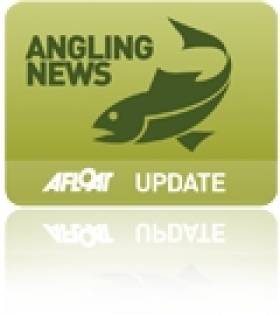Displaying items by tag: catchandrelease
#ANGLING - The 30-day public consultation on new regulations for the management of the 2012 wild salmon and sea trout fishery will expire next Thursday, The Irish Times reports.
The new regulations are based on advice from Inland Fisheries Ireland following an assessment of 141 rivers nationwide by the Salmon Standing Scientific Committee.
That assessment recommended that that 43 rivers should open (seven fewer than in 2011); 34 rivers should open for catch-and-release (six more than 2011); and 64 rivers should be closed (one fewer than 2011).
New conservation rules include bag limit for sea trout and a restriction on angling for other species when fishing for salmon on closed rivers.
The Irish Times has more on the story HERE.





























































